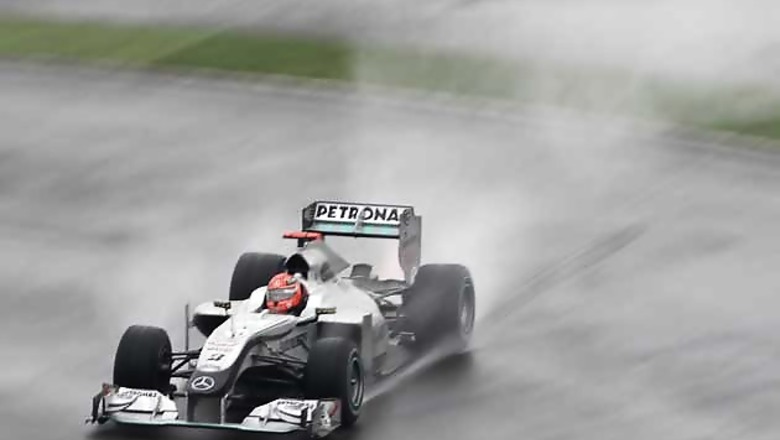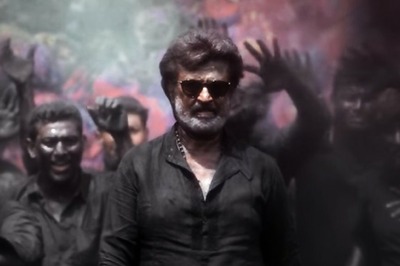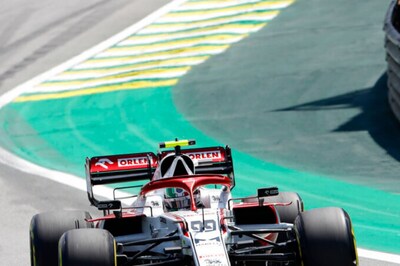
views
Paris: Four races into the Formula One season, evidence is steadily accumulating that Michael Schumacher is no longer the indomitable driver he once was.
The seven-time Formula One champion's much-hyped comeback is quickly proving an anticlimax. Instead of being carefully thought out, it is beginning to look like the vain folly of a middle-aged man who got bored in retirement and who missed racing's adrenaline buzz but who also made the mistake of kidding himself that he still has that old magic.
At 41, Schumacher is showing his age. There's no mistaking how the tight face-squeezing fit of his race helmet bunches and accentuates the telltale wrinkles around his eyes. The racing rust is proving troublesome, hard to shake off. Unless he can quickly get back up to speed, F1's most successful driver could, at this rate, go the entire season without winning a race.
Younger drivers have easily had his measure, even in the rain where Schumacher's sure touch of the wheel, controlled love of risk and steady nerves once made him so hard to beat. The aura of quasi-invincibility that once surrounded Schumacher hasn't followed him out of retirement. Now, he merely looks ordinary, a cold truth that McLaren's Lewis Hamilton indirectly acknowledged this weekend.
"It's just as exciting as racing with any other driver" was Hamilton's ho-hum response when asked what it is like to compete against the German who owns a big chunk of F1's records.
The most damning evidence of Schumacher's decline is that his teammate Nico Rosberg, 17 years his junior, is driving brilliantly in exactly the same car.
In Rosberg's hands, the Mercedes looks competitive, even though it clearly lacks the blinding all-around pace of the Red Bulls and the straight-line speed of the McLarens. The 24-year-old German manages to make the car appear better than it is, whereas Schumacher makes it look sluggish.
Rosberg is consistently quicker than Schumacher in qualifying, always placing himself on the first three rows of the grid where there is less risk from traffic and accidents at the start.
And Rosberg does the job in the race, too. With the exception of the somewhat dull Red Bull-dominated Malaysian Grand Prix, where he started second but finished third, Rosberg is placing better in the race or finishing just as highly as he did in qualifying.
The reverse is true for Schumacher. Only at the season-opening Bahrain Grand Prix did he make up a place, from seventh in qualifying to sixth at the checkered flag.
In Australia, Schumacher qualified seventh but finished 10th, after colliding with Ferrari's Fernando Alonso and taking an age to get past Jaime Alguersuari in his modest Toro Rosso.
In Malaysia, Schumacher was undone by a wheelnut failure, hardly his fault. But he can take some of the blame for his poor driving this weekend in China, where he qualified ninth — more than half a second slower than Rosberg — and finished 10th. He was in and out of the pits like a yo-yo for tire changes as he struggled with the wet-dry, wet-again track conditions. On lap 14, when he had already switched tires twice, Schumacher radioed to his engineers that it was raining again, in essence wondering whether he should come in for another change.
"Nico has stayed on dry tires all the time," came the telling response. In short, the youngster's doing fine while you seem at sea.
"One of those races that you do not want to remember," Schumacher said later. "Not good for me and not good from me."
With F1 now heading back to Europe for the Spanish Grand Prix on May 9, Schumacher has a mere 10 points with 15 races remaining, compared to 50 for the consistent Rosberg and 60 for leader Jenson Button, the world champion disproving those who predicted his downfall after his offseason switch to McLaren.
A disastrous comeback, if that is what this turns out to be, can never taint or diminish Schumacher's achievements of the past, when he was in his prime. His seven world titles, 91 Grand Prix wins and his dominance with Ferrari are all safely locked away in F1's history books.
But neither can he rest on those laurels. Unless Schumacher starts proving again — and soon — that he can still win, then it will be legitimate to suggest that he should have stayed retired, getting his kicks from parachuting, motorbike riding and testing Ferrari road cars instead of trying to turn back time in an F1 cockpit.


















Comments
0 comment